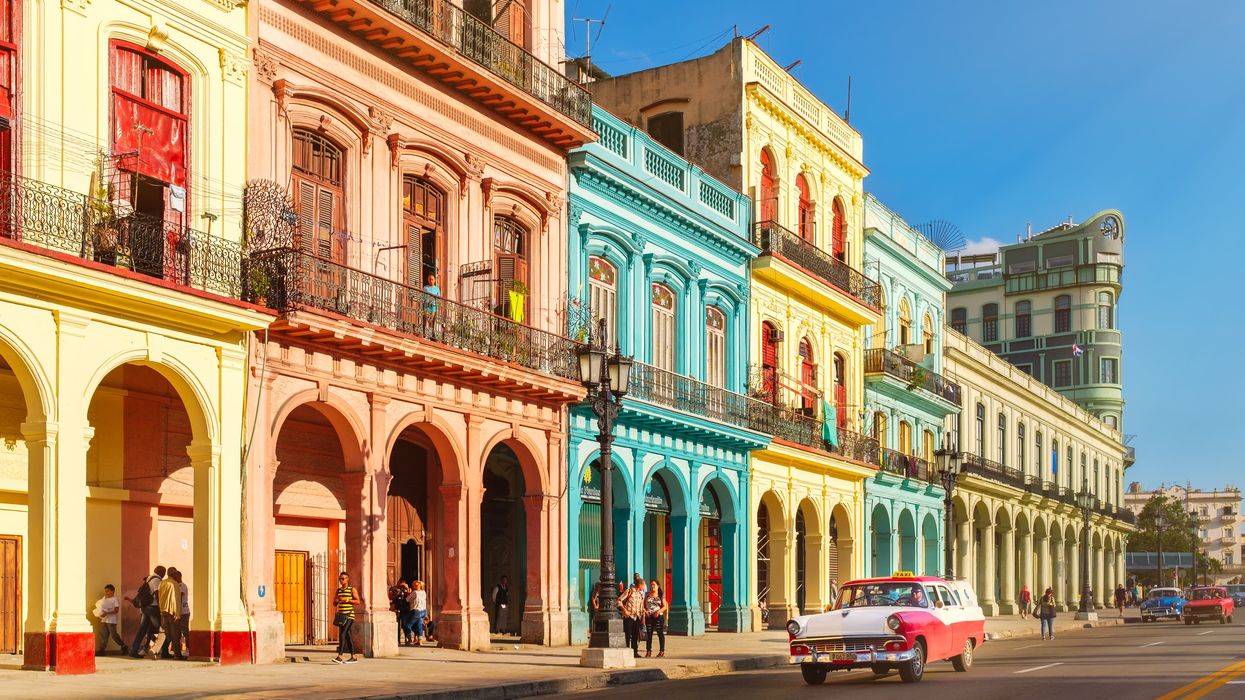Cuba's entry rules are changing and travelling Canadians should check their tickets ASAP
Cuba's entry requirements are changing on July 1.👇

Downtown Havana, Cuba.
If exploring white-sand beaches, soaking up the sunshine, and enjoying Cuba's warm Caribbean hospitality is on your summer to-do list, take note! Cuba's entry rules are changing, and the shift could affect Canadian travellers.
Effective July 1, travellers entering Cuba will be required to present an electronic visa, replacing the traditional paper tourist card previously issued to most visitors.
The change was announced by the Cuban Ministry of Tourism back in April and has since been highlighted by the Government of Canada in an update to its travel advisory for Cuba.
The new entry requirement applies to most international travellers, including Canadian citizens. However, the process for obtaining an e-visa depends on how you are travelling to Cuba.
For travellers flying directly from Canada, the new electronic visa is typically included in the airfare package. In these cases, no separate application is required.
So, if you're heading to Cuba after July 1, it's important to check the fine print on your booking and confirm whether your electronic visa is included in your airfare.
This update is similar to the previous system, where the paper tourist card was typically included in vacation packages or direct flights from Canada. Travellers going through third countries were, and still are, responsible for obtaining the visa independently.
This means travellers who enter Cuba via a third country, including those on flights with stopovers in countries like the United States or Mexico, must apply for an e-visa in advance. This also applies to anyone booking with an airline that does not include the visa as part of its travel package.
Electronic visa applications can be submitted online on the eVisa Cuba website and will cost Canadian travellers CA$24.
Once the visa is approved, travellers will receive a confirmation email with a unique code. This code is required to complete Cuba's D'Viajeros form, which must be submitted at least 48 hours before departure. The form serves as a mandatory travel declaration and is part of Cuba's entry requirements.
The e-visa allows a single entry into Cuba and permits a stay of up to 90 days. Travellers may extend their stay once, for an additional 90 days, resulting in a maximum stay of 180 days.
As part of its travel advisory update, the Government of Canada reminds travellers that "every country or territory decides who can enter or exit through its borders. The Government of Canada cannot intervene on your behalf if you do not meet your destination's entry or exit requirements."
Travellers should also be aware of Canada's current travel advisory for Cuba, which remains to "exercise a high degree of caution." This is due in part to ongoing shortages of basic goods such as food, medicine, and fuel. That said, most resorts are equipped with generators and tend to be less affected by these issues.
Canadian officials also advise caution due to crime risks, including pickpocketing, ATM fraud, and scams targeting tourists.
Finally, while Cuba does not require six months of passport validity beyond your travel date, all visitors must have a passport that remains valid for the entire duration of their stay.
For the latest updates, check out the Government of Canada's latest Cuba travel advisory or the official eVisa Cuba website.
Safe travels, Canada!
Before you get going, check out our Responsible Travel Guide so you can be informed, be safe, be smart, and most of all, be respectful on your adventure.